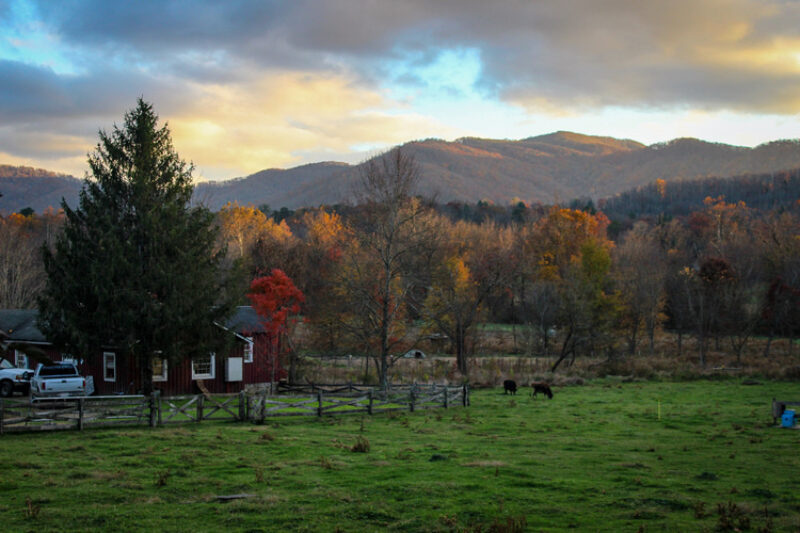
Warren Wilson College will launch Climate Action Now (CAN), a multi-year initiative focused on actions to mitigate climate change, with a free webinar from noon to 1 p.m., Wednesday, November 20, entitled “No More Climate Havens: Educating for Reality.” All are invited.
Moderated by Dr. Keith McDade, Director of the new Masters of Science in Applied Climate Studies program at Warren Wilson, the panel will feature distinguished climate experts:
- Dr. Bill Throop, Emeritus Professor of Philosophy and Environmental Studies at Green Mountain College and author of Flourishing in the Age of Climate Change
- Dr. Debra Rowe, President of the U.S. Partnership for Education for Sustainable Development
- Jenny Dissen, Engagement and Partnerships Lead at the North Carolina Institute for Climate Studies
The event will explore the crucial role of higher education in climate education, examining how institutions can best equip students to meet climate challenges head-on. The discussion will cover strategies for integrating climate action into educational missions and inspire attendees to envision an educational system where resilience and sustainability are core values.
Building on Warren Wilson’s longstanding commitment to environmental and social responsibility, CAN aims to prepare students to lead the charge in tackling the global climate crisis and to position the College as a model of sustainable action in higher education. CAN will be integrated into every part of the College’s experiential learning model—academics, work programs, and community engagement.
CAN is dedicated to inspiring a generation of climate leaders equipped to address complex environmental challenges. Through innovative research, curriculum, and sustainable practices on campus, CAN seeks to empower students with the knowledge and skills needed to create impactful climate solutions. Our College has a long, distinguished trajectory in environmental and human sustainability. Today, more than ever, we must rise to the challenges posed by the climate crisis.
Key CAN initiatives for 2024-25 include developing a Climate Action Plan (CAP), forming a Climate and Sustainability Crew responsible for collecting and assessing greenhouse gas emissions data, and hosting the first Climate Summit in June 2025. This summit will bring together stakeholders from within and beyond the College to collaborate on achieving meaningful sustainability goals and mark the inaugural residency for the Master of Science in Applied Climate Studies (MACS) program.
CAN’s Vision and Goals
Climate Action Now is built around four core objectives: protecting our land, biodiversity, and the planet; expanding research and outreach; educating leaders equipped to find solutions; and leading by example as a sustainable organization. President Damián Fernández underscores the interdisciplinary nature of the initiative, noting that “Global climate change is a transdisciplinary problem—the most pressing one we are confronting. It requires natural sciences, humanities, and social sciences to address its multiple ramifications. It impacts the arts as an expression of the human experience, and creatives are finding ways to represent what they are witnessing and deepen understanding.” CAN’s goals reflect the College’s commitment to fostering an environment where students are both informed and empowered to become proactive stewards of the environment.